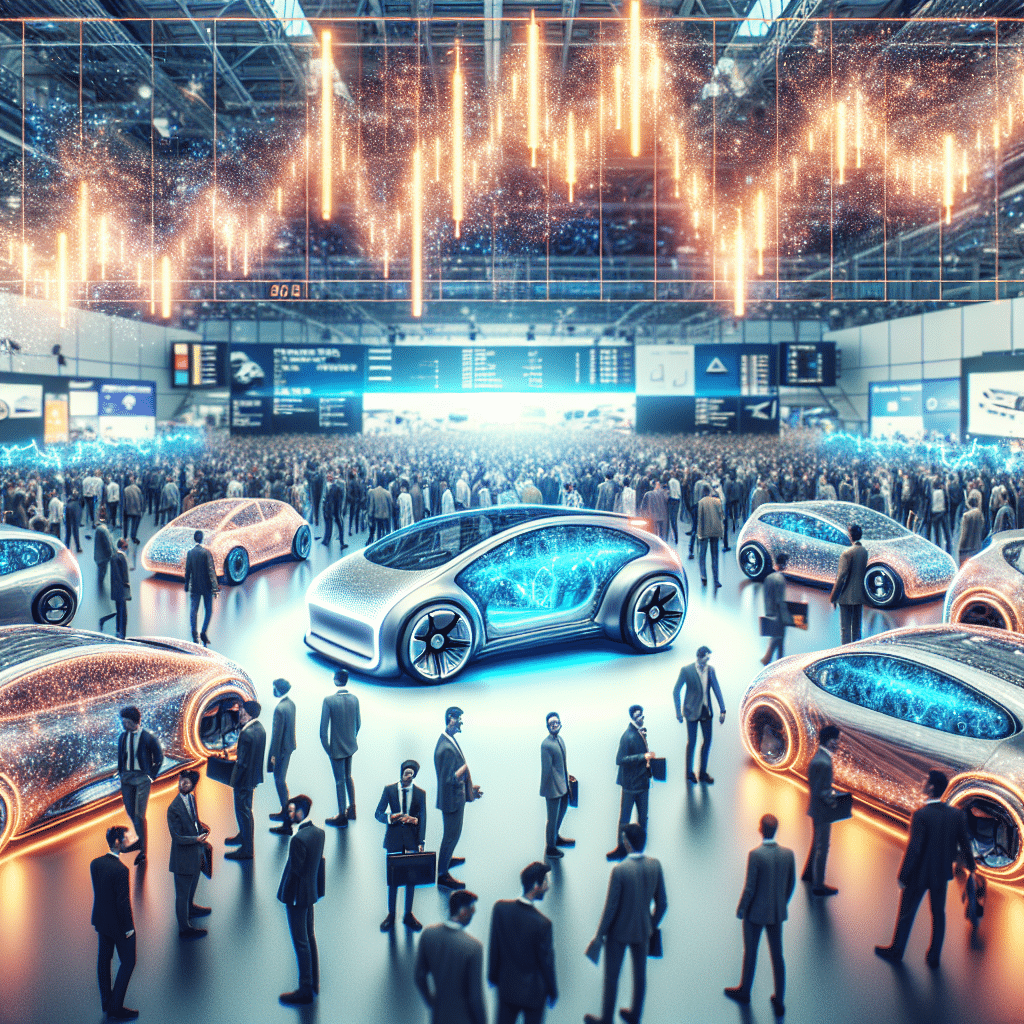Munich Auto Show Spotlight: Why Electric Vehicles Remain a Powerhouse Despite Sales Concerns—A Key Indicator for Investors Eyeing the Future of Mobility
At the heart of Europe’s automotive future, the IAA Munich auto show has once again spotlighted electric vehicles (EVs) as the unstoppable force reshaping the industry—despite growing skepticism and regulatory hurdles. For investors and advisors eyeing the EV landscape, this event offers more than just shiny new models; it reveals critical trends and strategic pivots that could redefine market dynamics in the years ahead.
Volkswagen’s Aggressive Push into Affordable EVs: A Game-Changer for Mass Adoption
Volkswagen (VWAGY), Europe’s largest EV seller and the world’s second-largest automaker, is doubling down on affordable electric mobility. Their latest reveal, the ID.CROSS concept, is a compact crossover EV priced around €25,000 ($29,300), slated for European release early next year. This model joins the ID.Polo and ID.Polo GTI, rounding out a trio targeting the budget-conscious segment—a critical battleground as EVs transition from niche luxury items to mainstream transportation.
VW CEO Oliver Blume’s confidence is no empty rhetoric: VW commands a commanding 28% share of Europe’s EV market. This aggressive pricing strategy signals a broader industry trend—mass-market affordability will be the key lever for EV adoption, especially in price-sensitive European markets. For investors, this means keeping a close eye on automakers successfully balancing cost, range, and performance could yield significant returns as EVs become household staples.
Premium EVs: BMW and Mercedes Fight to Reclaim Market Share from Tesla
While VW dominates affordability, the luxury segment is heating up with BMW and Mercedes unveiling new midsize EV SUVs aimed squarely at Tesla’s faltering grip in Europe. Tesla’s sales have dropped 33.6% through July 2025, creating a lucrative gap for traditional premium automakers.
BMW’s iX3, boasting a nearly 500-mile range and 30% faster charging, promises to capitalize on the popularity of its gas-powered X3. Meanwhile, Mercedes’ all-electric GLC, targeting a 450-mile range and priced slightly above $50,000, is positioned as an “electric first” model, with gas and hybrid versions to follow. This dual approach hedges against regulatory and market uncertainties, reflecting a pragmatic strategy.
From an investment perspective, these moves underscore the importance of diversified EV portfolios. Companies like BMW and Mercedes that combine cutting-edge EV tech with established brand loyalty and flexible product lines may weather market shifts better than pure EV players.
Regulatory Headwinds and Market Realities: The EU’s 2035 Gas Ban Debate
Behind the showroom glitz lies a brewing storm. EU regulators aim to ban gas-powered car sales by 2035, a target that automakers like Mercedes CEO Ola Källenius and BMW CEO Oliver Zipse publicly criticize as unrealistic. Zipse’s point about emissions across the entire value chain—including battery production—highlights a nuanced debate often missed in mainstream coverage.
Stellantis, another European heavyweight, recently abandoned its internal EV-only 2030 target for Europe, citing unachievable carbon emissions goals. This pushback signals that while automakers are committed to electrification, they seek a more balanced, phased transition that considers economic and technological constraints.
For investors, this regulatory uncertainty means volatility—but also opportunity. Companies that innovate in battery recycling, alternative fuel tech, and hybrid solutions could emerge as winners in a less-than-linear EV adoption curve.
Market Data Speaks: EV Registrations Surge Despite Challenges
Data from the European Automobile Manufacturers Association (ACEA) confirms the momentum: July 2025 EV registrations jumped 33.6% year-over-year, with hybrids up 11.1%, while gas-powered car sales declined nearly 14%. This trend suggests consumer appetite for electrification remains strong, even if the pace is slower than regulators desire.
What Should Investors and Advisors Do Now?
-
Diversify Exposure Across EV Segments: Don’t just chase Tesla or pure EV startups. Consider established automakers like VW, BMW, and Mercedes that blend innovation with scale and brand loyalty.
-
Monitor Regulatory Developments Closely: The EU’s evolving stance on emissions and gas bans will impact valuations and strategic priorities. Companies demonstrating adaptability in regulatory compliance will likely outperform.
-
Focus on Battery and Charging Innovations: Faster charging and longer range are becoming standard expectations. Investing in firms leading battery tech improvements or charging infrastructure (e.g., QuantumScape, ChargePoint) complements EV manufacturer exposure.
-
Evaluate Supply Chain and Sustainability Practices: As Zipse highlighted, emissions from battery production and fuel sourcing matter. Companies with transparent, sustainable supply chains may gain investor favor amid ESG trends.
Looking Ahead: The EV Market’s Next Phase
The IAA Munich show reveals a market in transition—from aspirational luxury to practical affordability, from regulatory optimism to cautious realism. The next 3-5 years will likely see a more fragmented EV ecosystem, where multiple technologies and business models coexist.
A recent McKinsey report projects global EV sales could reach 30 million units by 2030, but with significant regional variations and technology mix. Europe’s EV market, while robust, is unlikely to follow a straight path to 100% electrification by 2035. Investors who recognize this complexity and invest accordingly will be best positioned to capitalize on the EV revolution’s unfolding chapters.
For Extreme Investor Network readers, the takeaway is clear: EVs remain a cornerstone of automotive innovation, but success hinges on nuanced understanding of market segmentation, regulatory landscapes, and technological breakthroughs. Stay informed, stay diversified, and prepare for a dynamic ride ahead.
Source: EVs, despite sales worries, are still hot at the big Munich auto show







